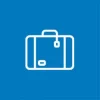Residents of Switzerland do more traveling than many people in the world. Much of the time our wanderlust takes us to countries with relatively high crime rates.
While theft occurs in Switzerland as well, you are never more vulnerable to crime than when you are on vacation. Being a foreigner automatically makes you stand out in many countries, especially if you look like a tourist. On vacation, drinks often flow freely, as does money, and all you really want to worry about is absolutely nothing.
Luckily, with a few simple precautions, you can protect your money even when vacationing in the most notorious of countries.
1. Get household insurance
Household insurance generally covers burglary and robbery of money - up to certain limits. Note that simple theft of money (pickpocketing, for example) is generally excluded from insurance coverage. This is true even if you have a simple theft away from home rider.
2. Pay hotels and transportation in advance when possible
Today, many travel services like hotel stays, activities rental cars and bus, train or airplane transport can be booked and paid for in advance. This can often be done either online or at a travel agency. The more of your big expenses you pay for in advance in Switzerland, the less money you will have to carry with you and the less expensive credit card payments or debit card cash withdrawals you will have to make while traveling. If you use a credit card to pay for travel bookings, you may also enjoy benefits like complimentary travel accident insurance, rental car insurance and trip cancellation insurance, depending on which card you use.
3. Use a debit card to get cash while traveling
Carrying around a safety belt stuffed with money was an okay idea in its day, and if you travel to a country where ATMs are scarce, that might still be necessary. However, in most countries you will be able to find at least some ATMs in the main cities. Where ATMs are available, you can use your debit card to withdraw relatively money at regular intervals to avoid the risk of carrying large amounts of money at any time.
Debit cards provide a lot of protection because they require PIN authentication for all transactions (unlike a credit card). Just make sure you understand the fees you will pay for cash withdrawals. These are shown in the private account comparison and the bank package comparison on moneyland.ch. In many cases, you pay a fee per withdrawal, so getting large amounts per withdrawal minimizes costs.
It’s also worth noting that not all debit cards are widely accepted. If you use a debit card such as those issued by PostFinance, you may struggle to find a compatible ATM even in Europe. In further flung destinations even Maestro debit cards may not be widely accepted, and a prepaid Mastercard or Visa card might be a better solution. You can compare the costs of prepaid cards using the credit card comparison.
4. Use a debit or prepaid card to pay for larger purchases
Nothing beats cash when it comes to sampling street food, browsing the curio market, scoring a bargain or paying for your beachside piña coladas. But using a payment card to pay for larger purchases will eliminate the need to carry large amounts of money with you. If merchants at your travel destination accept credit or debit cards, then using one is generally a safe option for making payments.
With a debit card, PIN authentication is required and your account number isn’t flagrantly displayed as it is on a credit card. If you travel frequently, you may want to consider opening a separate bank account just for your travel debit card and maintain a limited amount of money in that account. That way, if your card information is compromised, fraudsters will not have access to your primary checking account.
Unfortunately, debit cards are not nearly as widely accepted as credit cards, and in some cases (when renting a car or booking a hotel, for example) you may be required to use a credit card to guarantee payment. Where a credit card is required, a prepaid credit card is a fairly safe option because if your card details are stolen, the thief will only be able to access a limited amount of money. Most merchants accept prepaid cards in place of credit cards.
If you must use a credit card, make sure to use one which has 0 Swiss francs liability for fraudulent transactions. This insurance covers your liability for fraudulent transactions when your card is lost or stolen. Even with this coverage, you may have to provide a police report documenting the theft and show some proof that you did not make the purchases, which can be difficult.
5. Exercise caution when using street money changers
In many countries, small time money changers make a living by changing money for tourists. They generally charge a reasonable commission and using their service can be a convenient and “fair trade” method of exchanging currency and supporting local business. Most of these changers are simply small-time businesspeople trying to make a living.
Unfortunately, there are often conmen among them who rip you off with terrible rates, short-change you or worse yet, give you counterfeit currency in exchange for your hard currency. Where an ATM is available, using your debit card to withdraw cash in the local currency is often a safer option. If you prefer to use local money changers, or if no alternatives are available, make sure that you know the official exchange rate ahead of time for reference, and keep both eyes open for any slights of hand.
Also note that in some countries, only registered financial services providers are authorized to exchange money. Make sure to look into the rules governing which money changers you can use in order to avoid legal issues.
6. Leave your cards in the safe
Unless you plan on doing some big-ticket shopping or going to an ATM to withdraw cash, it’s a smart idea to leave your cards locked in hotel safes, when these are available. This is especially true when you are heading to the beach or another location where carrying a wallet or safety belt on you at all time is not convenient.
Cash is waterproof and far less fragile than a card. It’s easy to carry cash on your person no matter what you are doing. If the cash you take with you is stolen, you can use your card to access more. If your card is stolen, on the other hand, you may find yourself stuck with no way to get money at all, at least until your issuer can get a new card to you.
7. Know how to behave
In many countries, different areas have different amounts of crime, and knowing how to behave when visiting certain parts of a city or region can greatly reduce your risk of robbery. Areas popular with tourists are often more heavily policed than places off the beaten path, and it’s wise to ask your local hotel attendants or tour guides for an opinion about the safety of different areas before venturing off the tourist trail.
Certain precautions, like traveling in a group, not carrying large amounts of money or valuables (a smartphone or flashy watch, for example) on you when enjoying less-safe areas and staying away from certain places at night are basic measures that can help you avoid nasty experiences which could spoil your vacation.
More information:
Travel and credit cards: best tips
Credit card comparison
Using credit cards to earn free flights
Simple theft away from home insurance

 Deal of the Day
Deal of the Day 









